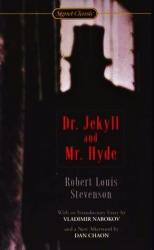
This book was alright. I had to read this for school once and actually quite enjoyed it. This is a great book for anyone who likes quick mystery reads. The plot is one that makes the reader want to continue reading! The book is about a mysterious doctor named Dr. Jekyll. Jekyll is a well respected man but awfully strange. If this sounds interesting I suggest reading it! Yes, it wasn’t my favorite, but I enjoyed the mysterious plot.
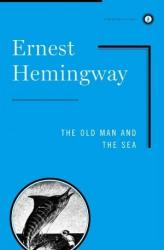
The story of Win and Loss, one of Ernest Hemingway’s most famous works, The Old Man and the Sea introduces us to a fisherman Santiago. He is old, but he has determination and a goal. He wants to catch his Big Fish. He does not give up even after eighty four days of failure and on the eighty-fifth day luck finally smiles at him. Big Fish is on the hook. Three days of confrontation between the fishermen and the fish reveal Santiago’s incredible inner strength and will power. But when he finally comes back to his hut, exhausted and barely alive, he’s left only with a skeleton of his dream and a poor illusion of a better life.
The deep symbols that the story contains can be interpreted in many different ways. Some of the readers may find the old man’s hunt as a waste of effort on a goal that is not worth risking his life. Others, however, will discover Santiago as their role model and an example of undefeatable human nature and endurance on the way to the dream. But this controversy and ambiguity is exactly what makes the book so unique and attractive to the generations of readers.
The language of the novella is typical for all Hemingway's books, simple and straightforward, however, this time the symbolic meaning is hidden under the coat of realistic story. It encourages the reader to think and reflect on the pages that he’s read and on his own life as well and find his own interpretation of the fisherman’s story.
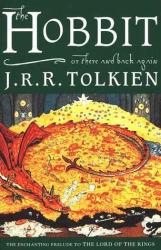
If you are looking forward to diving into the fascinating world of dwarves, wizards and elves and feel ready to fight evil wolves, man-eating trolls and a fire-breathing dragon Smaug, then The Hobbit by J. R. R. Tolkien is definitely for you. A warm children’s fantasy novel, which, however, will captivate the hearts of many adults, takes you to the atmosphere of fairy tales that you were listening to by the fireplace as a kid.
The main character, hobbit Bilbo, at first reminds us of ourselves. He, as all the hobbits are supposed to do, loves eating good food, spending time at home and making their houses cute and cozy. However, his routine crashed as a dropped pot, when a wizard Gendalf knocked at his door. Welcoming him inside, Bilbo could not even imagine that soon he would go on a true adventure all the way to the Lonely Mountain and save an ancient treasure from the claws of a furious dragon. On his way he will meet many different creatures, make friends and enemies, defeat mountain trolls, get captured by giant spiders, get into another captivity right after that, outplay Gollum in the caves and get the magical ring. But what is more important, Bilbo will turn into a brave warrior (what a shame for the entire generations of hobbits!) and a loyal companion.
The author's writing style and original universe makes it impossible to stay indifferent to the story. Kind and soft narration wraps you as an old blanket and keeps you cozy even in the coldest evenings. Younger readers, as well as their parents, will find many life lessons on the pages of The Hobbit, such as why it is important to make smart choices, appreciate your friendships and be ready to help those who are in trouble. The book is an awesome pick for both family time and independent reading.
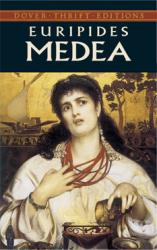
Medea by Euripides is a play about a princess in Greek mythology. She is betrayed by her husband when he weds another woman and Medea vows to take revenge. She plans to hurt everyone who hurt her, but by doing this she puts people who did her no wrong at risk. Will she end up getting revenge and living out her days or will she join the same fate that she curses down upon? I recommend this book to anybody who is into Greek mythology or would like to get into it. This is a fast read of about 50 pages.
Jaala 12
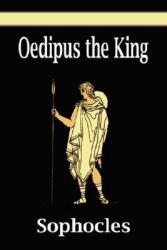
Oedipus the King by Sophocles is a Greek play that follows the tragedy and downfall of this King. He is presented by a messenger that a disease has spread across his land and he needs to save his people. He sets out in search of this issue, but slowly comes to the realization that this something is a someone within his borders. What if this someone who needs to be eradicated is one who governs it? I would recommend this book to anybody who likes Greek mythology or the adventure genre.
Jaala 12
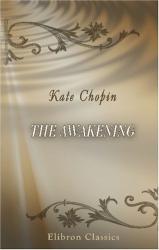
The Awakening by Kate Chopin is a fictional novel that questions what it is to be an independent woman in a male dominant society. Edna lives in the Creole society in New Orleans that values the idea of women being a housewife. Edna strays away from this ideal and attempts to break the boundaries of what women think and can do. Is Edna strong enough to break these barriers or will the barriers break her? I recommend this novel to anybody who loves twists and turns and what it truly means to be independent.
Jaala 12

I chose this book because I had watched the movie and was curious as to how the book was in comparison. I found that both were great overall and I don't dislike one more than the other, but the book felt more mature than the movie. Overall I really did enjoy this book, the detail in the book was a great touch, as well as was relatable. Personally, I felt a connection to some of the characters having to leave for college and trying to get the best possible score on the SAT. There is only one thing I did not enjoy about this book though, which is that there is a lot of smoking. The smoking feels a bit excessive, especially when the book follows a freshman in high school, so the amount of smoking I feel like does not portray a true aspect of what that would look like in real life. I would recommend this book to an upper teenage audience since there are mature topics such as brief sexual scenes and smoking. I gave this book 4 stars since I felt like it was very well written and an enjoyable book to read; the deduction of one star was due to the portrayal of smoking. This is honestly a great read that I personally love, I would definitely recommend it!
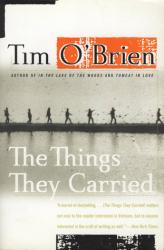
The Things They Carried is an interesting narrative about a group of soldiers as they navigate the horrors of the Vietnam War. Each chapter is fairly short and tends to have a lot of action or interesting commentary, so it was pretty engaging. What I didn't love, though, was the author's combination of realism and fiction. He used his own name as the main character, but experienced fake scenarios with people who never existed. It was sometimes frustrating, not knowing what was real or not. O'Brien was a soldier in the war, but he said that fictional war stories are a way for him to convey important messages of courage without reliving the trauma of his actual experiences. This is a unique genre, so it's worth a try if you like realistic fiction.
Grade 12
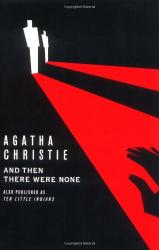
Ten strangers are mysteriously summoned to an isolated island... where murder awaits. Agatha Christie crafted an intricate web of betrayal and suspense, a must-read for any avid bookworm. This read was completely unpredictable - everyone was a suspect until the final, jaw-dropping reveal. The setup, the characters, and the gripping plot made this the best murder mystery I have read in years. With its trademark twists and a chilling ending, no one should miss out on the masterpiece of And Then There Were None.
Grade 11
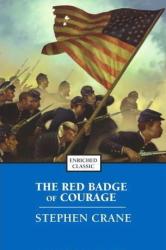
This book was a fascinating piece of literature. The author described war in more of a psychological format, as in the effect of war upon the mind, then a physical format. It reminded me of Robert A. Heinlein's Starship Troopers in its attention to the mind of a soldier. Many Civil War veterans would get a shock meeting Mr. Crane because they thought he had been in the Civil War when he hadn't. It was interesting how Crane referred to the main character, Henry Fleming, as "the youth". He uses similar naming for the other characters, like "the tall soldier," and "the friend." I enjoyed the book, and I'm impressed at how Crane, according to actual soldiers, so acutely described war on a minute-to-minute basis, when at the time of writing, he hadn't ever been in battle. This book almost felt like an experiment of Crane's, like he was just exploring new ideas. The result was international fame and a famous landmark of American fiction.
Reviewer Grade: 9
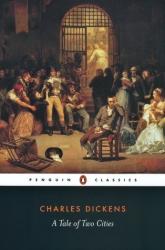
Thankfully, the older language in A Tale of Two Cities is slightly more manageable to read than other classics, so I was able to enjoy it. The story is about a young woman named Lucie and her father, Dr. Alexandre Manette, who had been smuggled out of prison and struggled with PTSD. Lucie is able to rehabilitate him and she falls in love with a young man named Charles. However, the last quarter of the book is a whirlwind as the characters discover one major factor: Charles may be involved with Dr. Manette's unrightful imprisonment. Each character is well-rounded and very practical under the gruesome circumstances of the French Revolution, though social norms of the time period still painted Lucie as incapable regardless of her courage in healing her father and coping with court troubles. The unexpected ending was my favorite, and is still memorable long after finishing the book. Despite the intimidating factor of the publication date, still give this book a try.
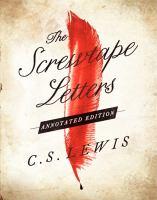
The Screwtape Letters by C.S. Lewis is a novel told in correspondence. Specifically, letters back and forth between a demon called Screwtape and his nephew Wormwood. These demons write to one another about all sorts of things, as families do, but mainly the humans. In this book, humans are the occupation of demons. Keeping them distracted, discontent, and leading them to misery is a merit of any accomplished demon. Readers will enjoy Wormwood's questions of "why must we do this?" or "is there a better way?" as he struggles with his mission to lead humans astray. Screwtape and Wormwood discuss many relevant issues of our own time, and the subject of spiritual warfare is present throughout. The Screwtape Letters is highly recommended for fans of Lewis as an introduction to more serious work or works on theology.
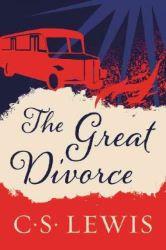
The Great Divorce by C.S. Lewis is a metaphysical novel following a bus tour through the afterlife. Strangers embark on wild journey through Heaven, Hell, and everything in between. As the story unfolds, characters realize every choice they make has a consequence, and their eternal destinies await them. Lewis speaks to universal experiences of grief, loneliness, and tragedy; his characters' stories are slowly told throughout the novel. Readers will enjoy the characters with varying backstories, explaining why they got on the bus tour. Follow humanity and hope unveiled in The Great Divorce. Next Stop: your bookshelf!
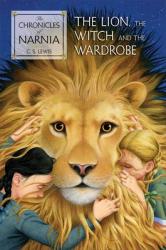
I first read this book when I was much younger and have read it many times since then, yet not in recent years. I just finished reading it once again about a month ago. Just like when I read the Lion, the Witch, and the Wardrobe for the very first time there was so much magic and wonder that engulfed me once more, and will again many times more.
It begins during the Blitz in 1940 with a family of four kids, Peter, Susan, Edmund, and Lucy. They, like many other children during this time, go to the countryside of England to escape the war and be safe. Yet their time in the countryside will be much different than any of the other children’s. They arrive at this mansion owned by a professor, who has a housekeeper that doesn’t want children there and makes sure that they don’t touch anything. The four children don’t want to leave their family and their home in London, but the homesickness fades away quickly once they start to have fun in the house and find a world of magic and endless possibilities. Lucy, the youngest of the four, finds a wardrobe hidden away in a spare room in the house, in it are a bunch of fur coats. She makes her way through with her eyes closed as the soft fur rubs against her cheeks when she suddenly feels something prickly and cold. She finds herself in a wood in the middle of winter and a faint light in the distance, the light coming from a singular light post in the middle of nowhere and nothing to power it. Here she meets Mr. Tumnus, a faun, who invites her for tea and cakes. She spends hours with him and learns about the land she is in, Narnia which is in a 100-year winter, and that she is the first human in this strange land in a long time, as well as that there is a witch, the White Witch, who has enslaved all of Narnia. When she returned she had been gone for hours, yet to her siblings, it was mere seconds, they didn’t believe her and when they went to check the wardrobe there was no wood. Edmund was especially mean about it but followed her in the middle of the night and found himself in the middle of the same forest she described and Edmund met the White Witch. One day all four children were rushed into the wardrobe as the housekeeper gave tours of the house since it had many relics, and they found themselves all in Narnia, not at all ready for the adventure ahead of them.
This magical place and book always make me feel like I was there with Peter, Susan, Edmund, and Lucy, as they had their adventures. The magic that C. S. Lewis was able to resonate with me every day as I too looked for a magical portal to a world unknown. This book is so enveloping as you read and finish it, it stays with you for years, making you think in ways you never thought of before. This book is an amazing book for anyone looking for an amazing fantasy book or a book that every time you read it you see something new.
Reviewer Grade: 12
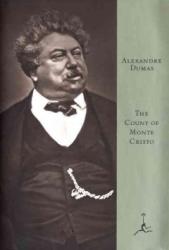
The Count of Monte Cristo serves as a literary masterpiece in both its prose and its raw images of humanity. Following Edmond Dantés on a journey of injustice, desperation, vengeance, success, readers are immersed in over a thousand pages of story about morality and the human experience. Through the chronicles of Dantés, his ruses, and his eventual persona, the Count of Monte Cristo, readers are able to explore France high society during the Napoleonic Wars, but also the injustices within the lower classes, and stories from everyday life of prisoners, laborers, and those outside of the elite. At its core, it's a book of adventure and romance, but the adventure is not without purpose. The manipulation, disappointment, and pure emotion are the driving forces of each character, and what makes the book such a special read.
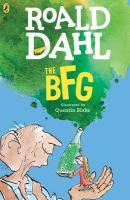
The BFG is the type of book you read once and continue to read over and over again. Personally, I have read this book several times all the way from elementary school to high school, and has remained one of my favorites to this very day (for more context I first read this book in school). From the crazy word concepts to the illustrations, this book keeps you interested with every page. I recommend this book to those in grade school and above; the language is easy to read as it tells the story from the viewpoint of a young girl. There isn't much I could say I disliked about this book, the end of the story was very heartwarming while the book kept you on you're toes all throughout. Fair warning, a frequent scene in this book is giants eating children, so if you are reading this to someone younger who may be scared easily, I would take that into consideration (in clarification the scenes are NOT graphic and are kid-friendly). It was an exciting read, and the illustrations do a great job at giving your mind something to picture as you read along throughout the book. The book isn't too long itself but I feel like it suits the storyline well. I gave this book 5 stars for several reasons, but the main idea is that: it's very well written and illustrated, a good read for young ages and above, and it is genuinely a very good book.
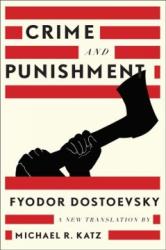
Crime and Punishment is a novel like no other. Set in Russia in the mid-1800s, Crime and Punishment watches the mental anguish suffered by a poor man forced to turn to murder in order to survive. The work has been cemented as one of the greatest pieces of psychological writing of all time and for good reason. Raskolnikov is a deeply tortured protagonist, and Dostoevsky brutally captures his emotions, fears, and motivations throughout the novel. As other characters with conflicting motivations threaten Raskolnikov's plans and schemes, his stress only becomes more powerful.
Crime and Punishment is not an easy novel by any means. The writing style is fairly archaic, and conversations can run on for what feels like forever. However, the story is so well thought out and executed that it deserves a read from anyone interested in psychology, literature, or even acting (the story serves as an excellent example of a character study from which one can take notes). Do not expect light reading or a feel-good story, as this book will take the reader into the desperation and pain experienced by the protagonist.
Crime and Punishment is one of the best novels of all time, and although it is a challenge to read, it is absolutely worth it for its views on society and man's mental state. If this review has sounded interesting to you, do yourself a favor and check it out today.
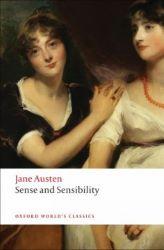
Sense and Sensibility follows two sisters, Marianne and Elinor, who have been left destitute following their father's death. Marianne is an impulsive romantic who chases love wherever it will lead her. Elinor is logical and socially conscious, and hides her turbulent emotions even from those closest to her. Together, the two of them will survive scandal, family drama, and first loves in an attempt to find the prized middle ground between passionate expression and silent intelligence.
This is not the best Jane Austen novel. I've only read about one and a half of her other works, but I can guarantee anyone that this is not the best Jane Austen novel. My main problem with this work is that it has all the drawbacks of a Jane Austen classic (slow pace, meandering conversations, way too many characters) with none of the expected romantic investment.
There's still a lot of great stuff about this book. The best thing for me was the main character, Elinor. Elinor is the character through which we sees the story, which has a lot of benefits. It makes her sister's antics more endearing and impactful. It makes her romantic situation more sympathetic, which it needs. It also makes the book much more interesting, because Elinor is an amazing character! She's funny in the best, most sarcastic way possible. She's observant and intelligent, so its great to watch how her mind works. She deeply loves the people around her, and gives everyone new dimensions. She is what makes this book special. The other benefits, I'd say, is the general humor in the writing, the drama of the story, and the sustained level of tension.
The thing I don't like about this romance novel is that it doesn't do what its supposed to do: create a compelling romance. Both sisters have romances that both end somewhat in tragedy, which is supposed to be very sad and moving. This works a pretty well with Marianne, since her situation involved a lot of deceit and drama that was very fun to read. It does not work at all with Elinor. Elinor's love interest is present for very little of the novel, and is so boring that I already forgot his name for this review and wouldn't have remembered it while reading the book if Elinor didn't think about him so often. And she does think about him a lot, which doesn't make sense to the audience, since he's offered so little of himself as a character to be a compelling love interest. This wouldn't be as big of a problem if romance wasn't the central pivot of the book, but as it stands it's distracting to see the intelligent, charismatic lead longing after someone the audience couldn't care about less.
All in all, this book is still very good, and worth a read! I'd recommend this to anyone who likes regency romance, interesting female lead characters, moving emotion, and lots of drama!
Reviewer Grade: 12
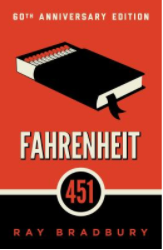
Fahrenheit 451 by Ray Bradbury is a dystopian novel written in 1953. Although some of the concepts and references are harder to understand due to when the story is written, it still holds many good messages relevant today. In this novel, books are banned, and firefighters burn houses with books inside instead of saving them. They are the protectors of happiness because books make people unhappy. Fahrenheit 451 follows a fireman, Guy Montag, as he starts asking questions about his job and society. This novel has many hidden meanings and is worth the time to read. The author does a beautiful job of keeping the writing and concepts simple enough for younger audiences. Overall, I would give it a five out of five stars.

The House on Mango Street by Sandra Cisneros is a coming-of-age story that follows a Latina girl living in Chicago. It is a story about finding who you are and your place in the world. This book is fun, simple, and written so anyone can read it. The book does not have to be read in any order, and the individual chapters carry so much meaning. The book is heartbreaking and inspiring, touching the reader's heart with warmth. This book will not disappoint. Overall, I would give it a five out of five stars.
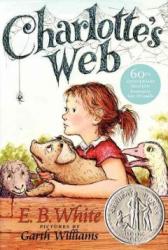
This book was good, but kind of old. It is a book about a girl named fern and she saved a pig from being killed. She named him Wilbur and he became kind of like her pet. Wilbur became bff's with a spider named Charlotte. I did like how the author described everything. It was very sweet how she made you feel like Wilbur and Charlotte were real and they were really friends. I did get nervous before the ending of the story for how it would end up.
-an almost 9th grader
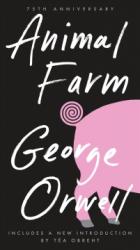
This book was pretty good. It was a little harder to get into than I thought it would be. The plot of the story was all about these animals on a farm, and how they wanted to have equality with the farmer. It is an old book that was written in 1945, but I thought it was really crazy how it is similar to some of the modern day issues the world is facing. My big sister has read it and we talked about it a lot, I think it is a better book for adults than for teen agers (I'm 14). The ending was not what I expected.
- almost 9th grader
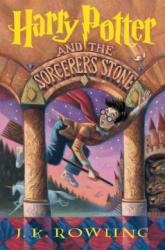
I have never really been good at reading long books, but my sister kept talking about the Harry Potter books and so I read the sorcerer's stone, and it was so good. I have a hard time actually picturing what's going on in the books, but the way that JK Rowling writes made it easy. The book is all about a fantasy world full of magic and wizards and spells and witchcraft. I literally wish I went to Hogwarts. If I did I would be a ravenclaw. I am really good at riddles.
Reviewer's Grade: 9
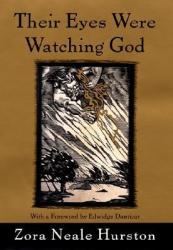
Their Eyes Were Watching God, written by Zora Neale Hurstson, is a contemporary fiction novel regarding the tale of Janie Crawford and her quest to find love. I like how the book introduces the characters in the beginning, after Janie's journey to find love, and then Janie tells her best friend about how she ended up where she was. Originally, her grandmother wed her to a man she was uninterested in. In fact, she was so uninterested in her husband that she ran off with another, more exciting man. The more she stayed with the exciting man, named Joe Starks, (she eventually married him), the more he hurt (physically/emotionally) her. Later, Joe dies, and she has little to no remorse over his death. A couple months later, she meets Tea Cake, and eventually falls in love with him. The part that I don't like about this book is that Tea Cake has a lot of warning flags, but they all seem to fly over Janie's head. I don't know if the author intended for the main character to be foolish or not, it simply shocked me how willing Janie was to devote herself to Tea Cake.
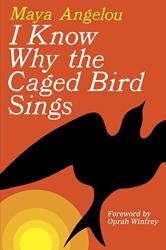
I Know Why The Caged Bird Sings, written by Maya Angelou, is an autobiographical account of Angelou's childhood. When Maya is a young child, her parents divorce. After the divorce her parents send her and her brother, Baily to Stamps, Arkansas to live with their Grandmother, where her Grandmother, affectionately referred to as "Momma", runs a convenience store. Angelou, despite her self-consciousness, appears to have had a great childhood growing up in the store. After about five years, Angelou's dad unexpectedly comes in and takes Bailey and her to their mother, who was living in St. Louis. While there, Angelou is molested by her mother's boyfriend. The boyfriend is quickly murdered and Angelou feels responsible for the death.
I liked to book because Angelou highlights how anyone can do what they set their mind to, and even in bad situations a human can grow immensely.
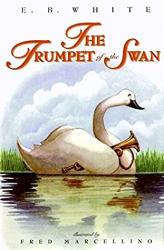
This is a childhood favorite of mine. The story follows Louis, a mute swan who travels across Canada to learn how to communicate and find his sense of self. He has to figure out how to adapt to his unique circumstances when no other swans have gone through the same thing. It is funny and unexpectedly educational about Canadian wildlife. Louis is such an entertaining and sweet character. There are occasional language choices that reflect the author's time period (vague stereotypes of Native Americans) but everything else is completely wholesome. Read this book if you have little ones or just want something lighthearted to read!
Grade 12
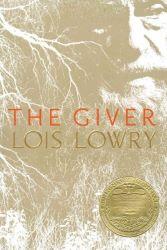
I picked The Giver by Lois Lowry because it is on the Skyview Middle School Battle of the Books list. All books from this list have been amazing, and this particular one has a main character with the same name as my brother: Jonas. I enjoyed hearing about their way of life, the simplicity yet complexity of it. I also liked how everyone knew when to apologize, and everything about their life and job. Each job in the Community is given to a person who seems they would enjoy it. However, as the book goes on, you see the compassion of the community, or lack thereof. This book was very surprising to me at first. But it was easy to guess what was going to happen in Chapter 20 after the events of Chapter 19. I do find it a not very relatable book, but it does remind me of history. Seemingly perfect, wealthy, kind countries with dark, gaping holes underneath the pretty exterior. The ending of this book, I feel, is incomplete. Overall, I really enjoyed this book.
(Grade: 7)
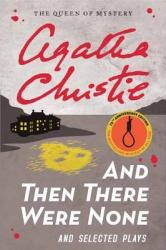
And Then There Were None is one of the best that I have ever read. I loved watching the characters, especially because of the incredible detail that Agatha Christie used to describe them and their unique personalities. They all seem real to me. The book itself was ingenious, incorporating suspense and making every character a plausible suspect and a possible victim. I found myself turning back pages to get the facts again and again, without having a clue as to who was the murderer. I recommend this book for ages 13+ as all of the details and situations can be extremely hard to process.
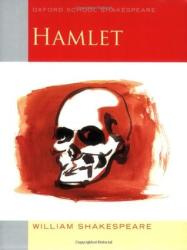
Hamlet by William Shakespeare is a play that was wrote in the 1600’s. The play starts off with the death of Hamlet’s father, King Hamlet, and the mystery of how he died. Hamlet feels that he should avenge his father, but never acts on the way he feels. He continues this habit in his relationships causing them to be full of mistrust and in the end, betrayal. This play contains many themes that teach a big lesson that individuals can apply to their lives today. I recommend this book to anybody that wants a murder mystery with multiple plots twists.
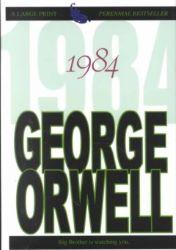
1984 is kind of a dystopian novel written in the 1940's about the 1980s. It's not the "Hunger Games" type of novel (which I also don't really like), where a bunch of teenagers overthrow the corrupt government. It's about a middle aged man living in a society where a Stalin-like figure rules. It is kind of a depressing book, and for the most part is kind of slow and uneventful. Overall, while this book makes some interesting points, I don't know if I would recommend it.